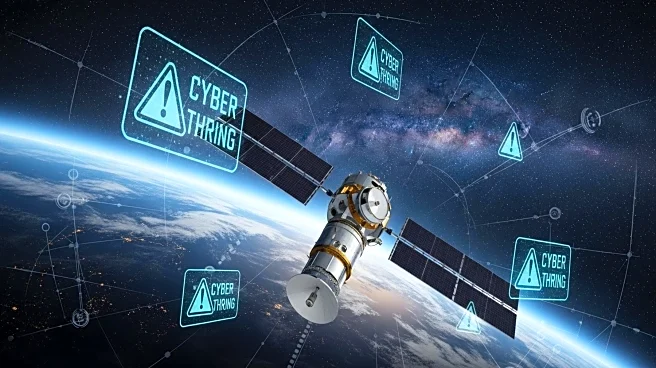What is the story about?
What's Happening?
Diane Howard, former commercial space policy director for the White House National Space Council, emphasized the responsibility of states to inform commercial spacecraft operators about cyber threats during the International Astronautical Congress. Howard presented a paper discussing the legal implications of cyber-enabled counterspace operations under the Outer Space Treaty. Her research, influenced by the 2022 Russian invasion of Ukraine, highlighted the targeting of commercial satellite infrastructure by hackers. The U.S. military and other nations increasingly rely on commercial satellites, exposing operators to potential military targeting. Howard noted that the U.S. Space Force's Commercial Augmentation Space Reserve blurs lines between civilian and military populations, as companies involved gain access to threat information. She questioned how governments can be compelled to share threat intelligence more broadly, citing international legal principles and the 2020 National Space Policy memorandum as foundations for this obligation.
Why It's Important?
The call for states to warn satellite operators of cyber threats is significant due to the growing reliance on commercial satellites for military and civilian purposes. This reliance increases the risk of these satellites becoming targets in conflicts, potentially destabilizing markets and affecting global communications infrastructure. By sharing threat intelligence, governments can help protect these operators, ensuring the stability of space-based services crucial for various sectors, including defense, telecommunications, and navigation. The broader dissemination of threat information could enhance security measures and investor confidence in space infrastructure, fostering a more resilient space economy.
What's Next?
The discussion at the International Astronautical Congress may prompt further dialogue on international cooperation and policy development to enhance cybersecurity for satellite operators. Stakeholders, including government agencies and private companies, might explore new frameworks for sharing threat intelligence more effectively. This could lead to policy revisions or new agreements aimed at bolstering the security of space assets. Additionally, operators may seek licensing to gain protection under existing policies, potentially influencing regulatory practices in the space industry.
Beyond the Headlines
The obligation to warn satellite operators of cyber threats touches on ethical and legal dimensions, particularly regarding the protection of civilian infrastructure in conflict scenarios. It raises questions about the balance between national security interests and commercial operations, as well as the role of international law in governing space activities. The evolving landscape of space security may drive long-term shifts in how nations collaborate to address cyber threats, potentially leading to new norms and standards in space governance.















